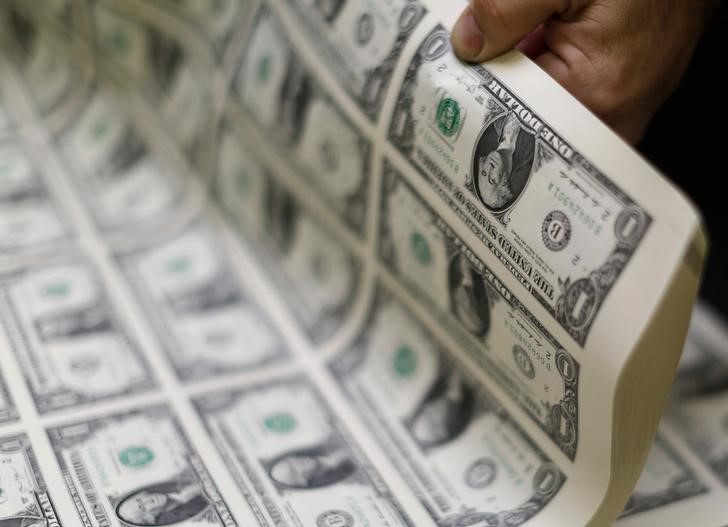* Graphic: World FX rates in 2020 https://tmsnrt.rs/2RBWI5E
* Markets brace for expected jump in U.S. jobless claims
* U.S. Senate backs $2 trillion stimulus bill
* Coronavirus is ravaging global economy
By Stanley White
TOKYO, March 26 (Reuters) - The dollar fell against the yen and the euro on Thursday, ahead of U.S. data that is expected to show a surge in unemployment benefit claims as firms lay off workers due to the rapid spread of the coronavirus.
The pound extended declines against the euro and the dollar due to worries that Britain is ill-prepared for a spiralling number of coronavirus cases, as healthcare systems in Italy and Spain are already being overwhelmed.
The Australian and New Zealand dollars, both of which are closely linked to the global commodity trade, fell against their U.S. counterpart as traders avoided taking on excessive risk.
Investors welcomed the passage of a $2 trillion U.S. stimulus package to offset the economic impact of the coronavirus pandemic, but there are already indications that some U.S. states will need more money for medical supplies as the healthcare system struggles to cope.
"It could be difficult for the markets to digest weekly jobless claims," said Tohru Sasaki, head of Japan markets research at JP Morgan Securities in Tokyo.
"Bad numbers are expected and priced in to a certain extent, but there are people who think things will get even worse. In the end, this may support the dollar as investors choose to bring their money home."
The dollar fell 0.69% to 110.47 yen JPY=EBS on Thursday.
Against the Swiss franc CHF=EBS , the dollar fell 0.34% to 0.9739.
Sterling GBP=D3 was little changed at $1.1875 but fell 0.45% to 92.02 pence per euro EURGBP=D3 .
The pound dipped early in Asian trade after the British government said the total number of coronavirus cases in the UK rose to 9,529 on Wednesday from 8,077 the previous day. weekly jobless claims due later on Thursday are expected to rise to around a million, which would be well above the previous peak seen during the global financial crisis.
Some analysts say jobless claims could even exceed one million as companies are expected to rapidly shed workers.
Draconian restrictions on personal movement aimed at slowing the spread of the coronavirus are widely expected to cause a global recession.
Federal Reserve Chairman Jerome Powell is scheduled to speak on U.S. television at 1100 GMT, which may provide more information about policymakers' response to the pandemic.
The U.S. Senate approved on Wednesday a $2 trillion emergency package, and U.S. President Donald Trump is expected to swiftly sign the bill into law following a vote in the House of Representatives on Friday. euro EUR=EBS rose 0.31% to $1.0912 on Thursday. The common currency held on to gains against the Swiss franc EURCHF=EBBS , trading at 1.0631.
The German lower house on Wednesday suspended the country's brake on debt and approved a debt-financed supplementary budget of 156 billion euros to pay for healthcare and keep companies afloat. economy suffered its biggest contraction in a decade in the first quarter, data showed on Thursday, as the coronavirus pandemic prompted the city-state to cut its full-year GDP forecast and plan for a deep recession. Singapore dollar SGD= , which already hit the lowest in more than 10 years on Monday, barely budged after the GDP data. However, the figures are likely to reinforce fears that global activity will sharply contract in the first half of the year. Singapore is one of the world's most open economies.
The Australian dollar AUD=D3 fell 0.43% to $0.5934, while the New Zealand dollar NZD=D3 declined by 0.24% to $0.5837.
Both the Aussie and the kiwi collapsed to multi-year lows earlier this month as nervous investors liquidated positions in favour of holding their money in the greenback in cash deposits.
